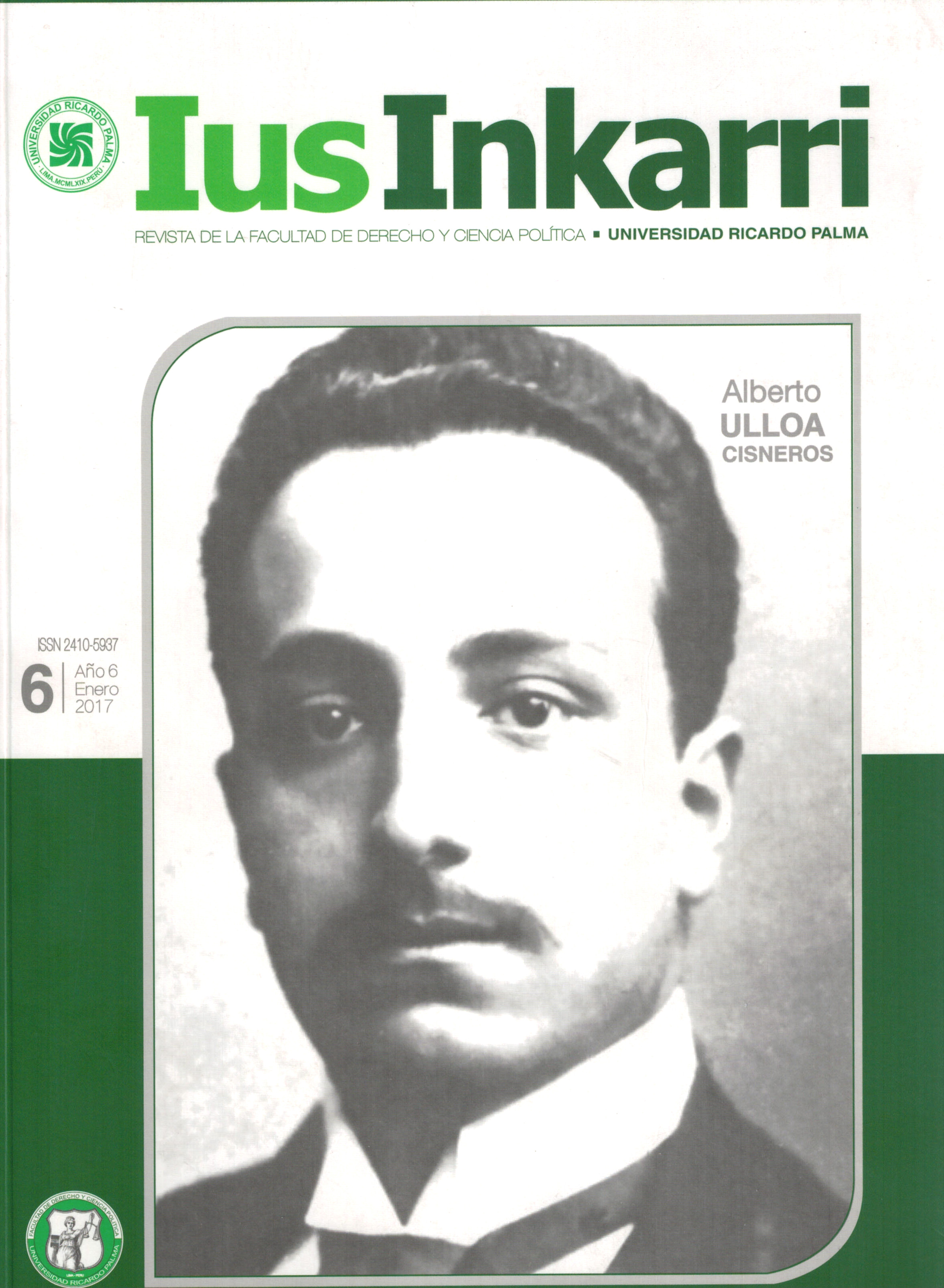Challenges of intellectual property in the information society
DOI:
https://doi.org/10.31381/iusinkarri.vn6.1236Keywords:
Intelectual property, Copyright, Patents, Information society, Piracy, Incentives, Renaissance, Lack of support, Overprotection, Business models, Digital contentAbstract
The progressive but unstoppable implementation of the Information Society has led to a number of changes in the way individuals understand creative activity and the value of intellectual property.
However, the intellectual property system, especially in the case of copyright, has not been able to adapt to these new changes, seeking to tighten the rules of sanction. The enforcement does not seem to work, because the consequences of the digitization, the lack of support and the dematerialization of protected contents have not been understood.
Although in the field of patents there is a progressive movement to the flexibilization of the system, the same has not happened in copyright, thus hindering the development of new business models.
Downloads
References
Boldrin, M., & Levine, D. (2008) Against Intellectual Monopoly. Ebook.
Burrell, R., & Coleman, A. (2005) Copyright Exceptions: The Digital Impact. Cambridge: Cambridge University Press.
Cavero Safra, E. (2012) Entre el huevo o la gallina y la planchada y la camisa; introducción al análisis económico de la propiedad intelectual. Themis - Revista de Derecho (62), 123 - 141.
De Castro, I., & Schallnau, J. (2013) ¿Cuánto cuesta defender los derechos propios de PI? OMPI - Revista, 23-27.
De la Fuente Soler, M., & Viana Ballester, C. (2007) Intercambio de archivos y vulneración de derechos de autor. En A. Baix Palop, & G. López García, La autoría en la era digital: industria cultural y medios de comunicación (pág. 364). Valencia: Tirant Lo Blanch.
De los Reyes Gómez, F. (13 de octubre de 2013). El privilegio de los Diccionarios de Antonio de Nebrija (siglos xv-xviii): otro enredijo de mil diablos. Obtenido de Corpus Eve [En línea]: http://eve.revues.org/850
Heller, M., & Eisenberg, R. (1 de mayo de 1998). Can Patents Deter Innovation? The Anticommons in Biomedical Research. Science, 280(5364), 698-701.
Kinsella, S. (2001) Against Intellectual Property. Journal of Libertarian Studies (15).
Loredo, A. (2006) Derecho de Autor y Copyright: dos caminos que se encuentran. Alfa Redi: Revista de Derecho Informático, 1-12.
Organización Mundial de la Propiedad Intelectual. (2017) Nota Explicativa sobre el origen del régimen jurídico de propiedad intelectual del Reino Unido. Obtenido de OMPI website: https://www.wipo.int/wipolex/es/notes/gb.pdf
Pasquel Rodríguez, E. (2004) Una visión crítica de la propiedad intelectual: Por qué eliminar las patentes, los derechos de autor y el subsidio estatal a la producción de información. Revista de Economía y Derecho, 61-76.
Posner, R., & Landes, W. (2003) Indefinitely Renewable Copyright. University of Chicago Law Review (471), 471-518.
Reventós, L. (5 de marzo de 2009). Daniel Ek, fundador de Spotify: “El futuro está en el acceso no en la propiedad”. Obtenido de El País: https://elpais.com/diario/2009/03/05/ciberpais/1236223466_850215.html
Rodríguez García, G. (2012) ¿El fin de la historia para la propiedad intelectual? Themis - Revista de Derecho, 297-307.
Tritton, G. (2007) Intellectual Property in Europe. Sweet & Maxwell.
Varian, H. (2006) Copying and Copyright: Los derechos de propiedad en la era de Internet. Economía Industrial(360), 17-27.
Downloads
Published
How to Cite
Issue
Section
License
Copyright (c) 2018 Ius Inkarri

This work is licensed under a Creative Commons Attribution 4.0 International License.













